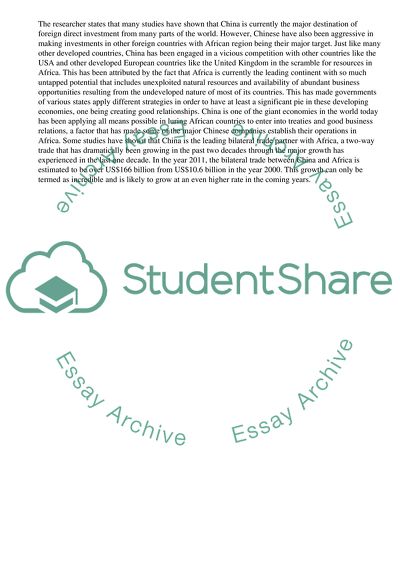Cite this document
(“Investment between China and Africa Essay Example | Topics and Well Written Essays - 2000 words”, n.d.)
Investment between China and Africa Essay Example | Topics and Well Written Essays - 2000 words. Retrieved from https://studentshare.org/business/1637429-analyse-the-flow-of-investment-between-china-and-one-or-more-of-its-partners
Investment between China and Africa Essay Example | Topics and Well Written Essays - 2000 words. Retrieved from https://studentshare.org/business/1637429-analyse-the-flow-of-investment-between-china-and-one-or-more-of-its-partners
(Investment Between China and Africa Essay Example | Topics and Well Written Essays - 2000 Words)
Investment Between China and Africa Essay Example | Topics and Well Written Essays - 2000 Words. https://studentshare.org/business/1637429-analyse-the-flow-of-investment-between-china-and-one-or-more-of-its-partners.
Investment Between China and Africa Essay Example | Topics and Well Written Essays - 2000 Words. https://studentshare.org/business/1637429-analyse-the-flow-of-investment-between-china-and-one-or-more-of-its-partners.
“Investment Between China and Africa Essay Example | Topics and Well Written Essays - 2000 Words”, n.d. https://studentshare.org/business/1637429-analyse-the-flow-of-investment-between-china-and-one-or-more-of-its-partners.


